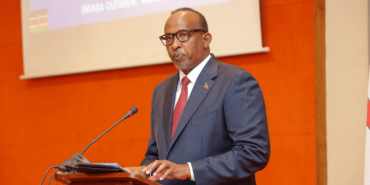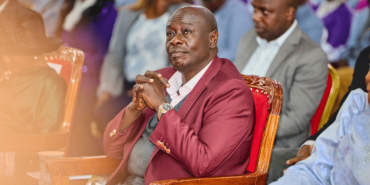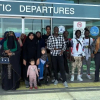‘They Said It Was My Last Day’: Kenyan TikToker Details Abduction Before Protest Anniversary

A Kenyan TikTok content creator, Geoffrey Chesoni, has alleged that he was abducted, tortured, and intimidated, sparking renewed fears about the suppression of dissenting voices in Kenya.
The allegations emerged on the eve of the first anniversary of the 2024 Gen Z protests. Chesoni, a 27-year-old Mombasa resident who uses his TikTok platform to share civic-themed content, claims he was seized on 24 June as he prepared to participate in commemorative demonstrations. According to eyewitnesses, the incident occurred near the Splendid Hotel in central Mombasa, where Chesoni was attending a "Bunge la Wananchi", a public political forum.
Eyewitness accounts describe seven individuals in plain clothes interrupting the forum, firing a weapon into the air, and forcibly taking Chesoni into a dark blue Subaru with registration number KDC 126E. Footage of the incident has been widely shared online, prompting widespread debate over the identity and authority of the abductors. In a statement released following his release, Chesoni claimed his captors failed to identify themselves as law enforcement officials or provide any formal reason for his detention. He characterised their behaviour as "gangster-like," stating that he was handcuffed, beaten, and driven for several hours before being abandoned in a forested area near Voi, over 150 kilometres from Mombasa.
"They told me it was my last day alive," Chesoni said, detailing threats that he would be left in the wilderness to be killed by wild animals. "They asked me who was funding me. They kept bringing up the name of Albert Ojwang."
Chesoni claims the men accused him of incitement, questioned the motives behind his social media content, and demanded access to his mobile phone. He asserts he was subjected to both physical violence and psychological torment for more than 24 hours. According to his account, the ordeal extended beyond the forest. Chesoni claims he was driven to the grounds of State House, Mombasa, where further intimidation occurred.
His abductors reportedly issued a final warning against publicly discussing his experiences before releasing him. Despite this warning, Chesoni has since been summoned to appear before the Anti-Terror Police Unit (ATPU), raising concerns regarding the state's approach to dissent online and expression linked to protests.
The Kenya National Commission on Human Rights (KNCHR) has confirmed receiving reports of at least 15 enforced disappearances linked to the 25 June protests.
Commemorative demonstrations marking the anniversary of widespread anti-government rallies, originally driven by economic grievances, resulted in 179 arrests, over 500 injuries, and 19 fatalities, according to independent monitors. President William Ruto condemned the demonstrations as calculated acts of violence and sabotage, asserting they surpassed constitutional boundaries. "The Constitution guarantees peaceful protest," he said, "but we must not confuse that with destruction of businesses, police stations, or acts of violence."
However, civil society organisations have criticised the official response to the protests. The Police Reforms Working Group has denounced what it describes as arbitrary detentions, including those of three human rights defenders, John Nzau, Mark Amiani, and Francis Mwangi, who are currently held at Muthaiga Police Station following their arrest in Machakos County on Saturday. Mounting reports of extrajudicial abductions and harassment suggest a concerning trend.
Analysts suggest these alleged tactics bear the hallmarks of state-sponsored efforts to suppress dissent outside legal frameworks. Kenyan law broadly protects the rights to assembly, expression, and legal protection during arrest. However, implementation remains inconsistent, especially during politically sensitive times. The discrepancy between constitutional guarantees and operational realities continues to erode trust in public institutions.








Add new comment